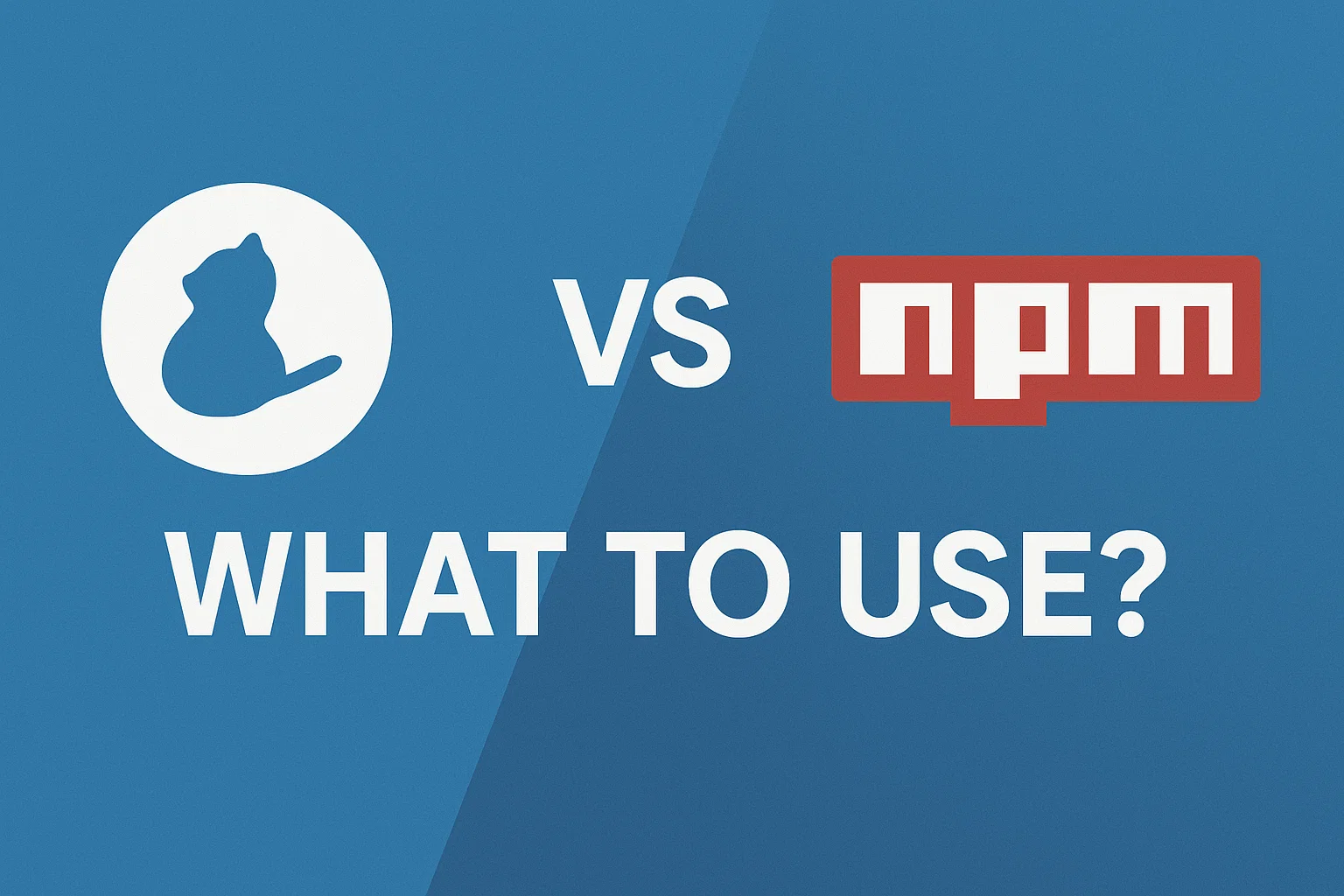JavaScript powers much of the digital world, and package managers are the backbone of its ecosystem. These tools automate the process of finding, installing, and updating project dependencies—ensuring developers save time, reduce errors, and build efficiently. Among them, Yarn and NPM are the two leading solutions, each with unique strengths and a history of continuous improvement. This article compares their core functionality, performance, features, and community adoption, helping teams decide which best fits their needs.
Yarn vs. NPM: A Comprehensive Comparison for JavaScript Package Management
JavaScript powers much of the digital world, and package managers are the backbone of its ecosystem. These tools automate the process of finding, installing, and updating project dependencies—ensuring developers save time, reduce errors, and build efficiently.
Among them, Yarn and NPM are the two leading solutions, each with unique strengths and a history of continuous improvement. This article compares their core functionality, performance, features, and community adoption, helping teams decide which best fits their needs.
Core Functionality: Installation, Initialization, and Scripts
Both NPM and Yarn manage dependencies through a package.json file, create lockfiles (package-lock.json for NPM, yarn.lock for Yarn), and store packages in a node_modules folder.
- NPM:
- Default with Node.js.
npm installsets up dependencies.npm initstarts new projects.- Example:
npm run build
- Yarn:
- Uses the same registry as NPM.
yarn installensures reproducible builds.yarn initprepares project metadata.- Example:
yarn build
Key Comparison: Yarn originally had the edge in determinism and speed, but NPM quickly matched these features. Today, both are nearly identical in reliability.
Performance and Efficiency
- Yarn’s Early Speed Advantage: Parallel downloads and caching reduced install times dramatically.
- NPM’s Catch-Up: Since v5, NPM introduced parallelism and caching, closing the gap.
Key Takeaway: Performance differences are now minimal. Choose based on workflow, not speed alone.
Advanced Features
Workspaces (Monorepos)
- Yarn: Long-time leader for large-scale monorepo management.
- NPM: Later added Workspaces, now offers similar functionality.
Key Comparison: Yarn is still favored for enterprise monorepos, but NPM has strong adoption due to its default presence.
Security
- NPM:
npm auditscans and fixes vulnerabilities. - Yarn:
yarn auditprovides the same functionality.
Key Takeaway: Both tools now provide equally strong security features for modern workflows.
Community and Adoption
- NPM: Default with Node.js, billions of downloads weekly, and the largest package registry.
- Yarn: Favored in React ecosystems and complex enterprise workflows.
Key Comparison: NPM dominates in numbers, while Yarn shines in specific high-performance or monorepo contexts.
Choosing Between Yarn and NPM
- Choose NPM if:
- You want simplicity and ubiquity.
- Best for small to medium projects or onboarding new developers quickly.
- Choose Yarn if:
- You manage large monorepos or require strict determinism.
- Best for enterprise-scale or performance-sensitive projects.
Migrating Between Them
- NPM → Yarn:
rm -rf node_modules package-lock.json yarn install - Yarn → NPM:
rm -rf node_modules yarn.lock npm install
Pro Tip: Always test thoroughly after migration to avoid subtle dependency mismatches.
Final Thoughts
Yarn and NPM are both mature, reliable tools. Yarn introduced innovations, and NPM adopted them. Today, they deliver comparable performance and determinism. Your choice should depend on team familiarity, ecosystem integration, and project scale.
Analogy: Think of Yarn and NPM as two expert mechanics. Yarn was once the innovator, but NPM caught up. Now, either can fine-tune your project with precision.

